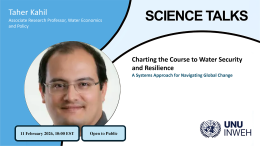Until this year, the UN Water Conference – the premier platform for world leaders to gather and discuss water scarcity and management – had not been held since 1977. Fifty years seems an unfathomable length of time to wait between conferences, especially in light of UN Secretary-General António Guterres' opening statement declaring that "water is in deep trouble" and "Water is humanity's lifeblood. From the food, we eat to the ecosystems and biodiversity that enrich our world, to the prosperity that sustains nations, to the economic engines of agriculture, manufacturing and energy generation, to our health, hygiene and survival itself." The critical importance of Water is evident; that this essential resource is in danger may, however, not be so clear to all.
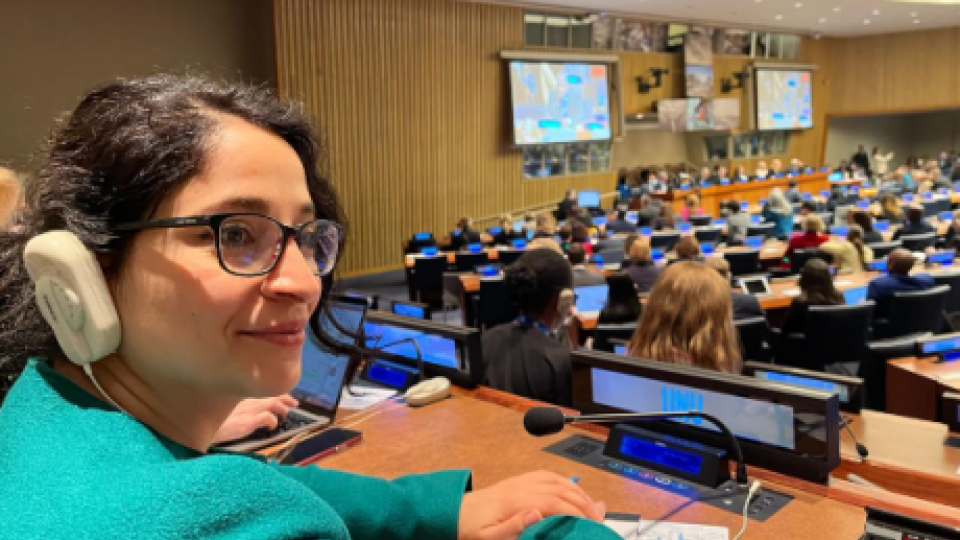
Both the topics discussed, and the global scale of representation makes the UN Water Conference particularly significant – not only to discuss water challenges faced around the world, but to bring together experts, policymakers, and stakeholders from various fields to discuss solutions to these issues. Moreover, it is an opportunity for these experts and policymakers to share knowledge and best practices, while seeking innovative action to tackle both current areas of concern and future water scarcity issues, so that water resources are managed sustainably for all.
UNU-FLORES undertakes its research and capacity-building activities via a Resource Nexus approach to ensure the sustainable management of natural resources. The Resource Nexus generally refers to the interconnectedness of natural resources such as Water, energy, and food, and recognises that they are inherently interdependent. In applying a nexus approach to research, UNU-FLORES aims to promote integrated sustainable resource management while acknowledging the interconnections and identifying opportunities for more effective resource use; this includes the development of strategies to improve water and energy efficiency in agriculture, conserving resources, and promoting renewable energy sources that help reduce water use. As the academic arm of the United Nations, a key role of UNU is to bridge the gap between science and policymakers to work toward sustainable and resilient systems that meet the growing demands of humanity on our precious resources.
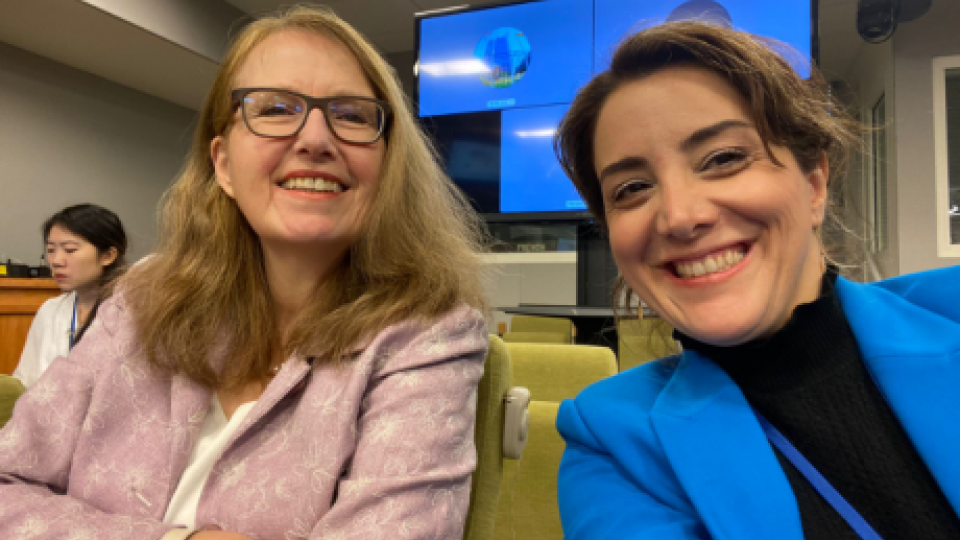
Given the historic nature of the UN Water Conference, UNU, of course, was well-represented by a multi-national delegation. Team members from UNU-FLORES were lead by Director Professor Edeltraud Guenther, and included Partnerships and Liaison Officer Dr Nora Adam, Senior Scientist Dr Sara Sadri, and Adjunct Professor Mukand Babel, alongside two professors from Strategic Partner, TU Dresden – Professor Juergen Stamm and Professor Andre Lindner. UNU-FLORES’ Dr Sara Sadri reported several key learning areas and topics, but one noteworthy learning point was from Water Insecurity Experience (WISE) Scales and in particular the work of Dr Sera Young; you can read more on this topic including some valuable information on measuring household water insecurity in the WISE report. Partnerships and Liaison Officer Dr Nora Adam reported that a key highlight for her was interacting with people from a variety of backgrounds - from early career specialists, practitioners, to established experts, as well as advocates with a passion for the topic. Additionally, youth engagement was a crucial aspect of the conference, and for our participants, being part of such an international community and witnessing first-hand the discussions and decision-making processes was highly valuable and very memorable.
In addition to the overarching Conference, several noteworthy side events were held throughout Water Week, including UNU-led presentations such as the ABCD Centre side event, Water Security and Climate Change Adaptation as Local Challenges with Global Importance. Director Edeltraud Guenther particularly emphasised her recommendation for all interested to review the Interactive Dialogue on Water for Sustainable Development as an establishing point for a new ‘water culture’. On discussing the importance of water culture, Director Guenther put forward that “there is an urgent need to establish and promote a water culture. This would involve raising awareness for water conservation, promoting a reduction of water pollution, recycling, and other initiatives that promote sustainable water management.” Another very worthy session that we encourage all water advocates to review is that led by fellow Institute UNU-MERIT on Water for Climate Mental health Resilience, where panelists discussed evidence and solutions to address the mental health implications of water insecurity. This was a very interesting and informative discussion with insights from experts across the world, from those working in research and in practice, to emergency and disaster respondents
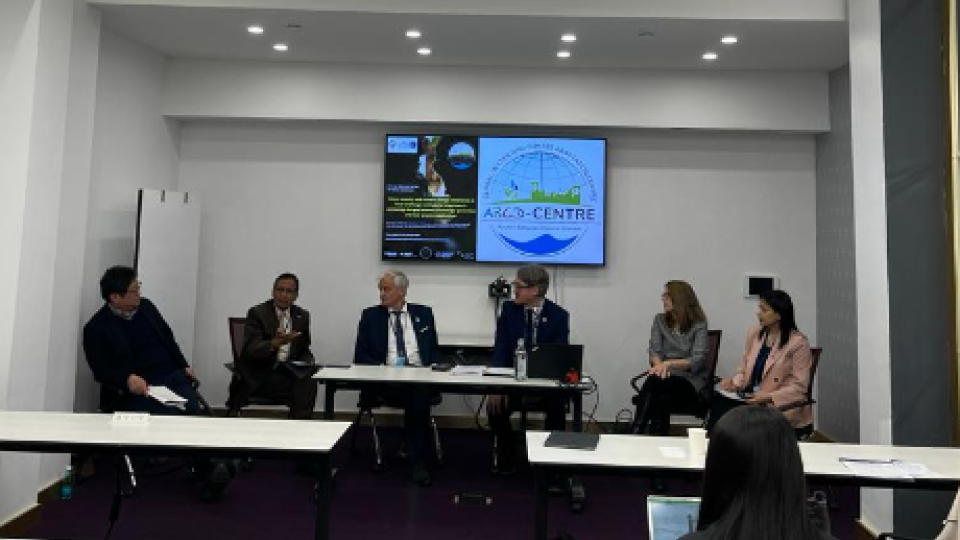
Despite the international attention garnered by the Conference, and so many sessions from a host of experts, there is still much to be done to achieve sustainable water management. Climate change, expanding populations, and increasing urbanisation will only place more demands on already limited water supplies; indeed, there are estimates that by 2025, half of the global population may be living in water-stressed areas! Fortunately, though, humans have always been innovators; it is innovation and creativity that has resulted in some of humanities greatest achievements - from the invention of the wheel, to sending humans into space, and the invention of the internet. This is why it is so vital that entrepreneurs focus on developing innovative solutions to water management. So far, these 'aquapreneurs' have begun developing ever more effective irrigation technology, smarter water filtration systems, and novel solutions for waste management. One very promising area for innovation is desalination, which is the process of removing salt and other minerals from seawater to make it drinkable. Although as yet, this is still a relatively expensive and energy-intensive endeavour, new technologies, such as reverse osmosis, have allowed for more sustainability and affordability. However, accessing safe, drinkable water is only one facet of water scarcity mitigation, with the development of water-saving technology - such as low flow toilets, or drip irrigation systems - combined with water reuse systems that, for example, reuse sink/shower water for use in toilets will also be a crucial component to achieving sustainable water management. The aquapreneurs that drive these innovations and beyond might be the key to ensuring that everyone has access to clean water.
The Conference closed to its 10, 000 participants with the adoption of the Water Action Agenda, a milestone action plan with nearly 700 commitments to secure safe and clean water for all. This transformative Agenda details a comprehensive plan with concrete steps to improve water management and increase access to affordable clean Water. It is a crucial step towards achieving the Sixth Sustainable Development Goal.
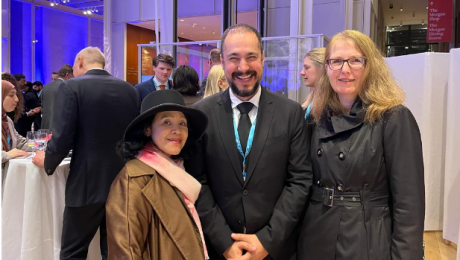
In fact, one key element of the Water Action Agenda is the promotion of innovation in water management to ensure its universal accessibility and affordability. After all, it is not sufficient that these technologies and solutions are created but are only available to some; all communities must benefit from such novel solutions, irrespective of economic status. While the Agenda is an important and significant step, governments, communities, and businesses must now work together to implement solutions to ensure access to clean water for all. This action includes investments in infrastructure, education, and addressing the root cause of water scarcity – climate change and pollution.
In viewing our research through a Resource Nexus lens, UNU-FLORES' fields of expertise include not only on water management, but sustainable finance, which has gained prominence on the policy stage due to the increased publicising of the financial risks associated with climate change. Moreover, research in sustainable finance in combination with innovation can be seen as a key driver for companies to align their activities with the SDGs. This important research area is highly valuable in driving positive change and contributing to a more sustainable future. You can read more about our research themes and projects here.


